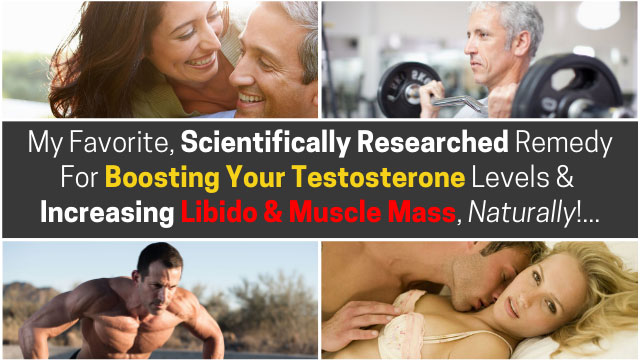Today I want to reveal the most powerful food for increasing your testosterone levels.
In fact, when I don’t eat this one food for a few days, I notice that my morning erections are less and sometimes, they don’t even happen.

Emotionally, I’m not as happy or as driven in life. I also notice I’m not as muscular AND, even my memory isn’t as good.
It’s all minor initially …. but over time, it becomes more noticeable because the minute I add this ONE food back into my diet – it’s like WOW… My morning erections and sex drive is super powerful again … especially when I add in some specific herbs, vitamins and supplements… which I’ll tell you about in a minute.
And today you’ll discover exactly:
- What this one food is
- What’s the best kind to buy
- How to prepare it correctly
- How much to eat
- When it’s the best time to eat it.
And all of this will only cost you about a dollar or two a day!
Okay, so without any further delay – this super, testosterone-boosting food is:
WHOLE EGGS!
And yes, I said whole eggs, with the yolk! Egg whites are for losers.
Nature made the perfect protein because the egg contains all the essential amino acids – half are in the white and the other have in the yolk. THAT’S why you need to have the entire egg.
However, it’s not the “protein” that’s important for increasing your testosterone – it’s the CHOLESTEROL found in the yolk!
And no, this doesn’t mean you should then have only the yolks – you need the entire egg.
And before I tell you why cholesterol is so important for testosterone production – I want to first stop and tell anyone listening who is thinking “wait a minute, isn’t this going to raise my cholesterol? Isn’t cholesterol bad for your health?”
The answer is that yes, eggs do raise cholesterol – but it’s the good, HDL cholesterol!1,2
So, that’s the first myth that I want to expose.
The second is that “high” blood cholesterol is not due to the cholesterol you eat from your diet.
This is because 80% of cholesterol is made INTERNALLY, by your liver.1,2
Unfortunately, as we age, as you liver becomes weaker and you have negative changes in your hormones due to aging, your body and liver aren’t as efficient for getting rid of excess cholesterol and that’s why there’s an increase.
Remember, cholesterol is good for your health. EVERY cell in your body requires cholesterol to function properly. And, this is especially important for testosterone production.
This is also why taking cholesterol-lowering “statin” drugs causes
- lowered libido
- Muscle loss and weakness
- Mood changes
- Memory loss
- And other health ailments
So if you do have high cholesterol – eating eggs isn’t the problem WHEN it’s done correctly and that’s what I’ll tell you in a minute.
Eggs and Testosterone Levels
Okay, so getting back to why eggs and cholesterol is so important for testosterone production.
First, cholesterol has a similar 4-ring structure to testosterone. And, testosterone is also produced from cholesterol.
And the best time have eggs is before bed because most of your testosterone is produced during sleep. So your body will now have enough “fuel” from the cholesterol from the eggs, to maximize the production of testosterone while you’re sleeping — assuming all of your hormones are functioning correctly.
The best kind of eggs to have are “pastured” eggs… NOT “pasteurized” eggs, which have been altered.
You’ll notice the “free-range” pastured eggs have a dark, orange yolk – which is how they are supposed to look. Not the typical “light yellow” junky eggs.
You want to have about 2-3 eggs a day, again before bed would be the best time. I have 4 or more eggs myself.
You want the yolks to be liquid still, not solid. So, soft boiled or even raw eggs would be best. And that’s it.
Do the eggs at night and take specific “testosterone boosting herbs” in the morning and you’ll be set. You’ll feel and look years younger – with higher testosterone, libido, energy, improved memory and so many other health benefits.
- https://www.ncbi.nlm.nih.gov/pubmed/22037012
- http://www.sciencedirect.com/science/article/pii/0026049565900028
- https://www.ncbi.nlm.nih.gov/pubmed/23021013
- https://www.ncbi.nlm.nih.gov/pubmed/8120521



